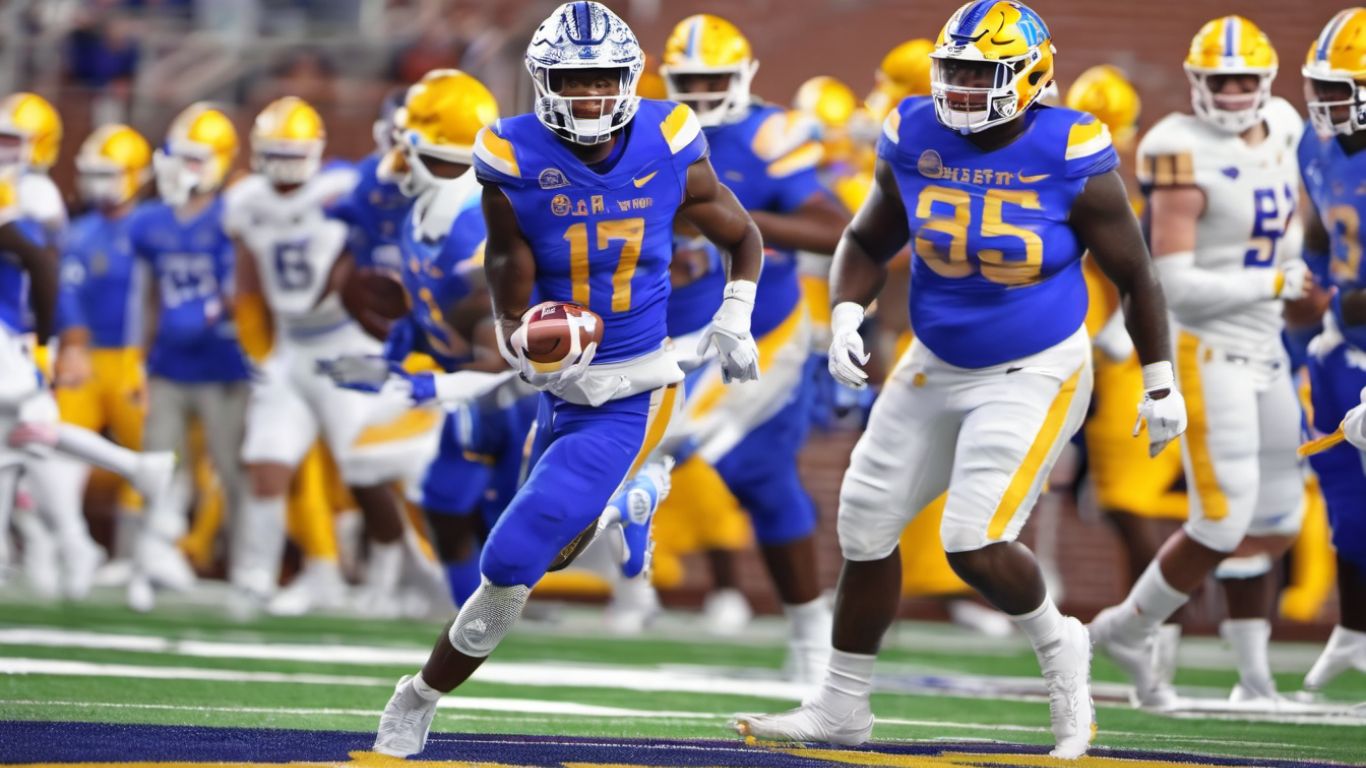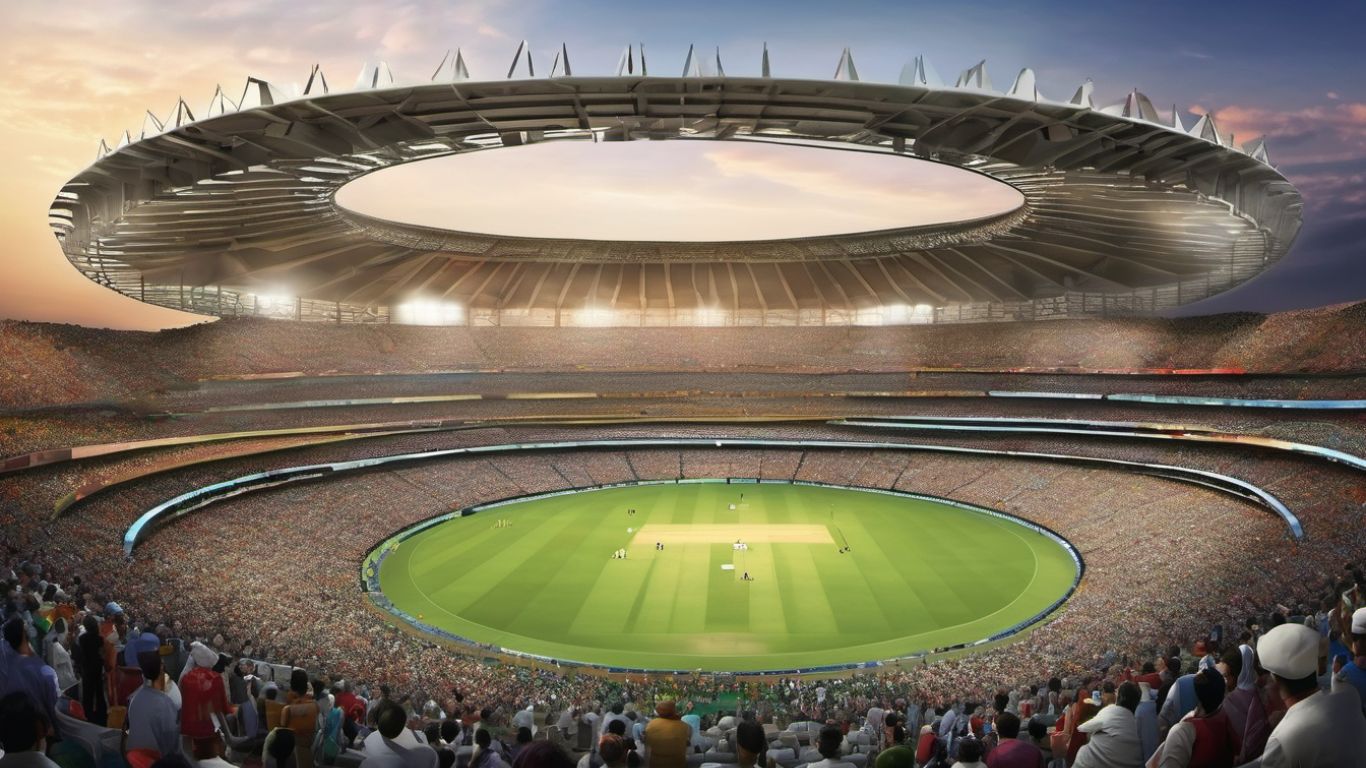A soccer game typically lasts around 90 minutes, including injury time. In this time span, two teams compete against each other on a rectangular field.
Soccer, also known as football in many parts of the world, is a popular and beloved sport that captivates millions of fans globally. The game’s duration is a key element that adds to its excitement and intensity. A standard soccer match consists of two halves, each lasting 45 minutes.
However, this does not include additional time, often referred to as injury time or stoppage time, which is added by the referee to compensate for any time lost due to injuries or other interruptions. Thus, the actual duration can vary slightly. Throughout the game, two teams of eleven players strive to outscore their opponents by kicking a round ball into the opposing team’s net. With its fast pace, skillful plays, and passionate atmosphere, soccer is a thrill to watch and participate in.

Credit: www.sandiegouniontribune.com
The Standard Duration Of A Soccer Game
`The standard duration of a soccer game can vary depending on the level of play and the significance of the match. Understanding the different components of a game and how they contribute to the overall duration is essential for any soccer enthusiast. In this article, we will explore the regulation time and additional time in soccer games, shedding light on how long you can expect a game to last.`
`regulation Time`
`Regulation time, also known as the regular playing time, is the main period of a soccer game. In most professional leagues and international competitions, the standard duration of regulation time is 90 minutes. This time is divided into two halves of 45 minutes each, with a 15-minute halftime break in between. The clock continues to run throughout the match, stopping only for certain events such as injuries or substitutions.`
`During regulation time, both teams strive to score goals and outmaneuver their opponents. Each team has the opportunity to showcase their skills, tactics, and strategies to secure a victory. The fast-paced nature of the game keeps players and spectators immersed in the action, eagerly awaiting the outcome.`
`additional Time`
`Additional time, also referred to as stoppage time or injury time, is an extension of the regulation time. It is added to compensate for any time lost during the game due to various factors such as injuries, substitutions, time-wasting, or excessive celebration after a goal. The amount of additional time is determined by the referee based on these factors. It is typically indicated by an electronic board held up by the fourth official and is expressed in minutes.`
`The purpose of additional time is to ensure a fair and complete contest, giving both teams an equal opportunity to influence the outcome of the game. It allows for any interruptions or delays during regulation time to be accounted for, ensuring that the game is played in its entirety.`
`It’s important to note that the additional time is not fixed and can vary from match to match. It is crucial for teams to use this time effectively in their pursuit of a victory, as a goal scored during additional time can be decisive in determining the outcome.`
`In conclusion, a standard soccer game consists of regulation time and additional time. Regulation time lasts for 90 minutes, divided into two halves of 45 minutes each, with a halftime break in between. Additional time is added to compensate for any interruptions during the game and can vary in duration. Now that you understand the standard duration of a soccer game, get ready to immerse yourself in the thrilling world of football.`
Factors That Can Affect The Length Of A Soccer Game
The length of a soccer game can be influenced by various factors, such as weather conditions, injuries, stoppages, and added time for delays. These elements can either shorten or lengthen the duration of a match.
Factors that Can Affect the Length of a Soccer Game In the world of soccer, the length of a game can vary depending on various factors. Understanding what influences the duration of a soccer match can help fans and players better anticipate the time commitment involved. Factors such as injury time, substitutions, and penalties can all contribute to the overall length of a game. Let’s take a closer look at each of these factors.
Injury Time
Injury time, also known as stoppage time, refers to additional minutes added to the end of each half of a soccer game. These minutes account for any time lost due to injury, player substitutions, or other interruptions that occurred during the normal regulation time. Injury time is at the discretion of the referee, who determines how many minutes to add based on the delays encountered throughout the half. It is important to note that injury time can vary from game to game, and it is not uncommon to see a few minutes added to the end of each half.
Substitutions
Substitutions are another factor that can impact the duration of a soccer game. In soccer, each team is allowed a certain number of substitutions, typically three, to replace players during the game. These substitutions usually occur when a player is injured, fatigued, or unable to continue playing. When a substitution is made, the game is paused momentarily to allow the player leaving the field to exit and the new player to enter. These brief breaks for substitutions can add to the overall length of the game, particularly if multiple substitutions are made by each team.
Penalties
Penalties, such as fouls or handballs, can also influence the length of a soccer game. When a player commits a foul or violates one of the rules of the game, the referee may award a free kick, a penalty kick, or a yellow or red card. These penalties often result in a stoppage of play while the necessary action is taken, such as setting up the free kick or penalty kick, cautioning or ejecting a player, or allowing injured players to receive medical attention. These interruptions can cause the game to last longer than the normal regulation time. In conclusion, several factors can affect the length of a soccer game. Injury time, substitutions, and penalties all contribute to the overall duration of the match. Understanding these factors can provide fans and players with a better sense of the time commitment required for a soccer game. So next time you settle in to watch a match, be prepared for a game that may go beyond the expected 90 minutes.
How The Length Of A Soccer Game Impacts Excitement
When it comes to soccer, the length of the game plays a significant role in the level of excitement for both players and spectators. The duration of a soccer match not only affects the intensity of gameplay but also influences the strategic decisions made by the teams. Let’s delve into how the length of a soccer game impacts excitement.
Intense Gameplay
Soccer games, typically lasting 90 minutes, are packed with non-stop action, making them inherently thrilling. The limited duration of the match compels players to give their all from the first whistle to the last, resulting in intense and fast-paced gameplay that keeps fans on the edge of their seats.
Tactical Strategies
The length of a soccer game also heavily influences the tactical decisions made by teams. With a finite amount of time to score, teams often employ strategic formations and play styles to outwit their opponents. The pressure to capitalize on every opportunity and the need to adapt tactics in real-time add an element of unpredictability, enhancing the overall excitement of the game.
The Longest Soccer Games In History
Soccer, also known as football in many parts of the world, is a game that is steeped in history and has seen some epic battles on the pitch. The duration of a standard soccer game is 90 minutes, divided into two halves of 45 minutes each, with a 15-minute halftime break. However, in some instances, matches have gone the distance, resulting in some of the longest soccer games ever played.
Record-breaking Matches
Throughout the history of soccer, there have been some extraordinary matches that have extended well beyond the standard 90 minutes, often due to extra time and even penalty shootouts. These games have not only tested the endurance and skill of the players but have also captivated fans around the world with their nail-biting drama.
One of the most memorable record-breaking games is the match between Chelsea and Norwich City in 1971, which lasted for a staggering 120 minutes of regular time, followed by a grueling 17 penalty shootouts, resulting in a total playing time of over 150 minutes. This match is etched in soccer history as one of the longest ever recorded.
In another historic game, the 2005 UEFA Champions League final between Liverpool and AC Milan went into extra time and then a dramatic penalty shootout. The back-and-forth battle on the field lasted for 120 minutes before Liverpool emerged victorious in the penalty shootout, making it one of the most unforgettable and lengthy matches in soccer history.
Longest Soccer Games In History
Breaking the records, some of the longest soccer matches have pushed players to their physical limits, showcasing the intense drama and passion that the sport is known for. From crucial cup finals to intense league matches, these games have left an indelible mark on the history of soccer, captivating audiences with their perseverance and determination.
Finding The Perfect Balance In Soccer Game Duration
The duration of a soccer game is a critical aspect that affects both players and fans. Striking the right balance in game length can determine the level of excitement and engagement. In this article, we will explore the factors that contribute to game duration and how finding the perfect balance can satisfy the expectations of fans and overcome broadcast constraints.
Fans’ Expectations
Soccer fans eagerly anticipate their favorite teams battling it out on the field, and game duration plays a significant role in their overall experience. Fans want enough time to witness competitive action and thrilling moments, yet they also value efficiency and avoid unnecessary downtime. A game duration that is too short can leave supporters feeling unsatisfied, while an excessively long game can test their attention spans and make it challenging to devote several hours to a single match.
Broadcast Constraints
Television networks and streaming platforms play a crucial role in broadcasting soccer games to a global audience. These broadcasters face constraints in terms of scheduling, ad placements, and program durations. As a result, they often prefer games to be within a predefined timeframe to cater to audiences and optimize advertising revenue. Finding the right game duration that fits the programming requirements without compromising on fan satisfaction becomes a delicate balancing act.
When determining the ideal length for soccer games, various factors must be considered. The level of competition, tournament format, pacing of the game, and even weather conditions can influence the duration. By analyzing these elements, organizers can make strategic decisions that strike the perfect balance between keeping fans engaged and accommodating broadcast constraints.

Credit: www.amazon.com
Frequently Asked Questions
How Many Hours Is A Soccer Game?
A soccer game typically lasts for 90 minutes, divided into two halves of 45 minutes each.
Is There 90 Minutes In A Soccer Game?
Yes, a soccer game typically lasts for 90 minutes.
How Many Minutes Is A Soccer Game World Cup?
A soccer game in the World Cup consists of two halves, each lasting 45 minutes, making a total of 90 minutes.
How Long Is A Mens Soccer Match?
A men’s soccer match typically lasts for 90 minutes, divided into two 45-minute halves. This duration does not include any additional time added by the referee for stoppage, injuries, or extra time.
Conclusion
To sum up, the duration of a soccer game can vary depending on several factors. Typically, a standard match lasts for about 90 minutes, divided into two halves of 45 minutes each, with injury time added. However, it’s important to note that the playtime can be extended due to various stoppages, such as substitutions, injuries, and time wasted.
Understanding the length of a soccer game allows fans to plan their time accordingly and fully immerse themselves in the thrilling world of soccer.








